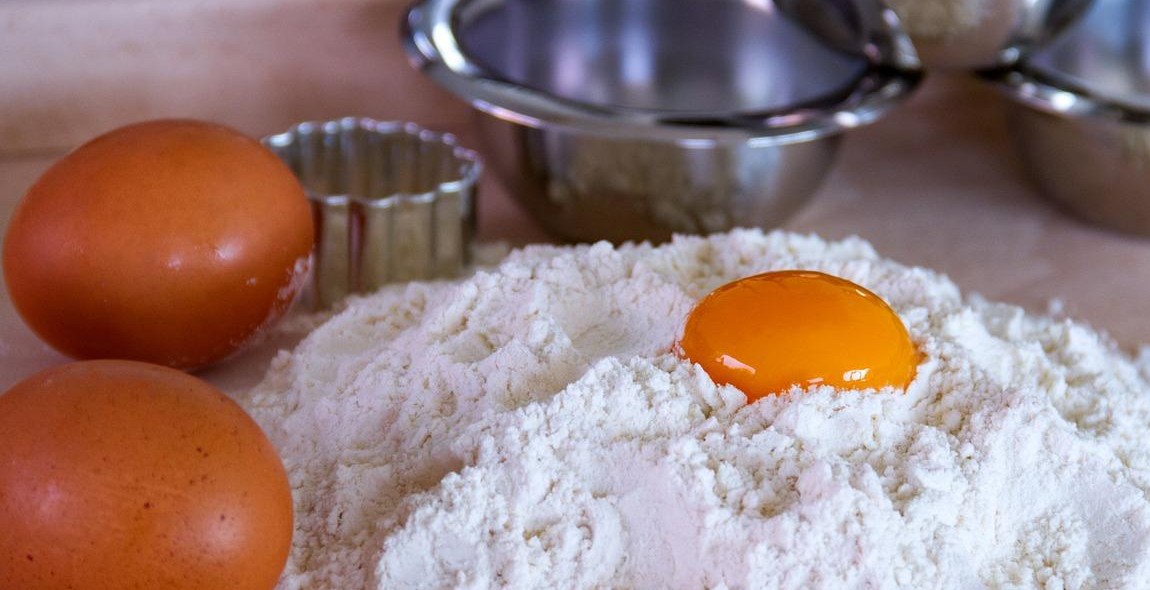How to Start a Cookie Business: A Step-by-Step Guide to Launching Your Cookie Venture
Are you passionate about baking and dreaming of starting your own cookie business? Starting a cookie business can be a fun and rewarding venture, but it requires careful planning and preparation. With the right strategy, you can turn your passion into a successful business that delights your customers with delicious, homemade cookies.
Why Start a Cookie Business?
Starting a cookie business can be a great opportunity to turn your passion for baking into a profitable venture. Cookies are a popular snack that people enjoy at any time of the day, and they make great gifts for special occasions. With the right skills and creativity, you can create unique and delicious cookie flavors that will keep your customers coming back for more.
Steps to Starting a Cookie Business
Starting a cookie business requires careful planning and preparation. Here are the steps you need to take to launch your cookie venture:
- Research and develop your business plan
- Determine your target market and competition
- Choose a business name and register your business
- Obtain necessary licenses and permits
- Set up your kitchen and equipment
- Develop your recipes and pricing strategy
- Create your brand and marketing strategy
- Launch your cookie business
In this guide, we will take a closer look at each of these steps and provide you with tips and resources to help you start your cookie business. Let’s get started!
Step 1: Develop Your Cookie Recipes
Before starting a cookie business, it is important to have a variety of delicious and unique cookie recipes. Here are some steps to help you develop your cookie recipes:
Research and Experimentation
Researching and experimenting with different ingredients and techniques can help you create a unique and delicious cookie recipe. Look for inspiration from cookbooks, online recipes, and even your favorite cookies from local bakeries. Experiment with different types of flour, sugar, fats, and flavors to create a unique recipe that stands out from the rest.
Testing
Once you have developed a few recipe ideas, it’s time to test them out. Make sure to follow your recipe exactly and take detailed notes on the process and outcome. This will help you refine the recipe and make any necessary adjustments to ensure the perfect cookie.
Refining Recipes
Refining your cookie recipes is an ongoing process. Continuously experiment with different ingredients and techniques to improve the taste, texture, and appearance of your cookies. Don’t be afraid to ask for feedback from friends, family, and even potential customers to help you perfect your recipe.
By following these steps, you can create a variety of delicious and unique cookie recipes that will set your business apart from the competition.

Step 2: Create Your Business Plan
Before you start baking cookies, it’s important to create a solid business plan to guide your operations. Here are three crucial elements to include:
Defining Your Target Market
Who are your ideal customers? Are they health-conscious individuals who prefer gluten-free or vegan options? Are they parents looking for tasty treats for their kids? Or are they professionals who enjoy gourmet cookies with their coffee? Knowing your target market will help you tailor your products and marketing efforts to their preferences.
Determining Your Unique Selling Proposition
What sets your cookies apart from the competition? Is it your secret recipe passed down through generations? Your use of high-quality, locally sourced ingredients? Your creative and eye-catching packaging? Determining your unique selling proposition will help you stand out in a crowded market and attract loyal customers.
Setting Financial Goals and Budgets
How much money do you need to start your cookie business? What are your revenue goals for the first year? Setting financial goals and budgets will help you stay on track and make informed decisions about pricing, marketing, and expansion.
Consider creating a detailed financial plan, including projected income statements, balance sheets, and cash flow statements. This will help you monitor your progress and adjust your strategy as needed.

Step 3: Register Your Business and Obtain Permits
Once you have decided on the legal structure for your cookie business, it’s time to register your business and obtain the necessary permits and licenses.
Choosing Your Business Structure
The first step in registering your business is to choose the legal structure that best suits your needs. You can choose from various options such as sole proprietorship, partnership, limited liability company (LLC), or corporation. Each business structure has its own advantages and disadvantages, so it’s important to research and consult with a legal professional before making a decision.
Registering Your Business
After choosing your business structure, you will need to register your business with the appropriate government agencies. This typically involves registering your business name, obtaining a tax identification number, and registering for state and local taxes. Depending on your location and business structure, you may also need to obtain a business license.
Obtaining Necessary Permits and Licenses
In addition to registering your business, you will also need to obtain any necessary permits and licenses to operate your cookie business legally. This may include a food service permit, health department permit, and a sales tax permit. Be sure to research and comply with all local, state, and federal regulations to avoid any legal issues down the line.
| Business Structure | Advantages | Disadvantages |
|---|---|---|
| Sole Proprietorship | Easy and inexpensive to start | Unlimited personal liability |
| Partnership | Shared responsibility and resources | Unlimited personal liability |
| LLC | Personal liability protection | More expensive and complex to set up |
| Corporation | Limited personal liability | More complex and expensive to set up and maintain |
By registering your business and obtaining the necessary permits and licenses, you can ensure that your cookie business is operating legally and avoid any potential legal issues in the future.

Step 4: Secure Your Ingredients and Supplies
One of the most important aspects of starting a cookie business is sourcing high-quality ingredients. The quality of your ingredients can make or break your business, so it’s crucial to find reliable suppliers who provide fresh, high-quality ingredients at reasonable prices.
Finding Reliable Suppliers
Start by researching suppliers in your area or online. Look for suppliers who specialize in baking ingredients and have a good reputation. Ask for recommendations from other bakers or business owners in your area, or join online baking communities to get advice from other professionals.
Once you’ve found a few potential suppliers, order samples to test the quality of their ingredients. Make sure to compare prices and delivery options before choosing a supplier.
Sourcing High-Quality Ingredients
When selecting ingredients, opt for high-quality, organic, and locally sourced ingredients whenever possible. This will not only improve the taste of your cookies but also appeal to health-conscious customers.
Invest in high-quality flour, butter, sugar, chocolate, and other essential ingredients to ensure the best possible taste and texture. Don’t be afraid to experiment with unique flavors and ingredients to set your cookies apart from the competition.
Investing in Equipment and Packaging
To ensure efficient production and delivery, invest in the right equipment such as mixers, ovens, and baking sheets. Additionally, invest in high-quality packaging to ensure your cookies stay fresh and visually appealing.
Consider investing in eco-friendly packaging options to appeal to environmentally conscious customers. This will also help to reduce your business’s environmental impact.
| Task | Completed |
|---|---|
| Research suppliers in your area or online | |
| Order samples to test quality | |
| Compare prices and delivery options | |
| Invest in high-quality ingredients | |
| Invest in the right equipment | |
| Invest in high-quality packaging |
Step 5: Set Up Your Kitchen and Production Process
One of the most important aspects of starting a cookie business is setting up your kitchen and production process. This will involve designing your kitchen layout, creating a production schedule, and hiring and training staff.
Designing Your Kitchen Layout
When designing your kitchen layout, you need to consider the size of your space, the equipment you need, and the flow of your production process. You should create a work triangle between your oven, sink, and refrigerator to ensure efficiency. It’s also important to have enough counter space and storage for your ingredients and equipment.
Creating a Production Schedule
Creating a production schedule is critical to ensure that you can meet demand while maintaining quality. You should create a schedule that outlines when you will bake, package, and deliver your cookies. This will help you manage your time and resources effectively.
Hiring and Training Staff
As your business grows, you may need to hire staff to help with production. It’s important to hire people who are reliable, hardworking, and have a passion for baking. You should also provide training on your production process, safety procedures, and customer service to ensure consistency and quality.
| ✔ | Design your kitchen layout |
| ✔ | Create a production schedule |
| ✔ | Hire and train staff |
By taking the time to design your kitchen layout, create a production schedule, and hire and train staff, you can set your cookie business up for success.
Step 6: Create Your Brand and Marketing Strategy
After you have perfected your recipes and baked some delicious cookies, it’s time to create your brand and marketing strategy. This is a crucial step in launching your cookie business as it will help you stand out from your competitors and attract customers.
Developing Your Brand Identity
Developing a brand identity involves creating a unique name, logo, and tagline that represents your cookie business. Your brand identity should communicate your values, personality, and the quality of your cookies. It should be memorable and easily recognizable.
Creating a Marketing Plan
Creating a marketing plan involves identifying your target audience, understanding their needs and preferences, and developing strategies to reach them. You can use both traditional and digital marketing channels such as flyers, brochures, social media, email marketing, and paid advertising to promote your cookie business.
Building an Online Presence
In today’s digital age, having an online presence is essential for any business. You can build an online presence by creating a website or an e-commerce store where customers can order your cookies online. You can also use social media platforms such as Facebook, Twitter, and Instagram to showcase your cookies, interact with customers, and build a community around your brand.
| Marketing Channels | Advantages | Disadvantages |
|---|---|---|
| Social Media | Low cost, wide reach, easy to use | Can be time-consuming, requires consistent posting |
| Email Marketing | Personalized, targeted, cost-effective | Can be seen as spam, requires building an email list |
| Paid Advertising | Immediate results, targeted audience | Can be expensive, requires expertise |
By developing a strong brand identity, creating a comprehensive marketing plan, and building an online presence, you can successfully launch your cookie business and attract customers.
Step 7: Launch Your Cookie Business
Now that everything is set up, it’s time to launch your cookie business. Here are some key steps to take:
Hosting a Launch Event
Hosting a launch event is a great way to generate buzz and excitement for your new cookie business. Invite friends, family, and potential customers to come and sample your cookies. Make sure to have plenty of business cards and flyers on hand to promote your business.
Building Relationships with Customers
Building strong relationships with your customers is essential for the success of your cookie business. Take the time to get to know your customers and their preferences. Offer personalized recommendations and special promotions to keep them coming back for more.
Continuously Improving Your Products and Processes
As your cookie business grows, it’s important to continuously improve your products and processes. Ask for feedback from your customers and make changes accordingly. Experiment with new flavors and recipes to keep things fresh and exciting.
| Key Takeaways: |
|---|
| Host a launch event to generate excitement for your new cookie business. |
| Build strong relationships with your customers to keep them coming back. |
| Continuously improve your products and processes based on customer feedback. |
